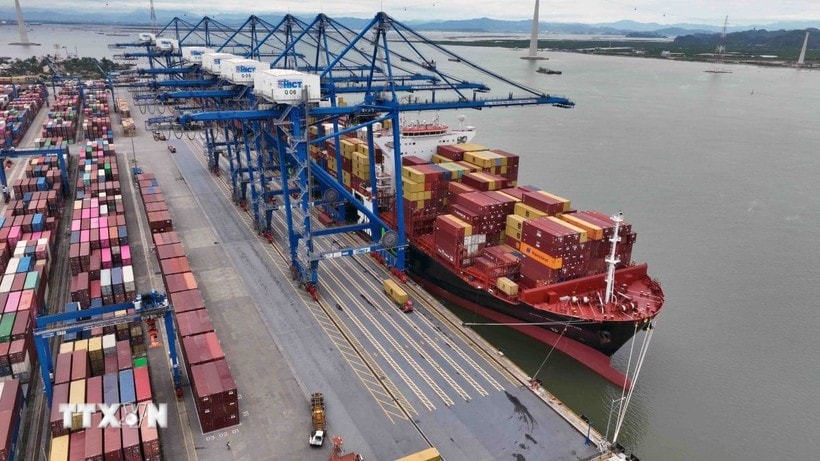Vietnam’s economic growth inspires other ASEAN members: Indonesian scholar
Vietnam’s remarkable economic growth has become a source of inspiration for other member states of the Association of Southeast Asian Nations (ASEAN), said Lamijo, a Southeast Asia researcher at Indonesia’s National Research and Innovation Agency (BRIN).

Jakarta (VNA) – Vietnam’s remarkable economic growth has become a source of inspiration for other member states of the Association of Southeast Asian Nations (ASEAN), said Lamijo, a Southeast Asia researcher at Indonesia’s National Research and Innovation Agency (BRIN).
Speaking to the Vietnam News Agency (VNA)’s resident reporter in Jakarta ahead of the 80th anniversary of Vietnam’s National Day (September 2), Lamijo, who used to live in and visit Vietnam many times, said Vietnam’s success has evoked confidence that with strategic vision, political stability and a strong commitment to reform, ASEAN nations can narrow development gaps and rise more competitively on the global stage.
Impressed by Vietnam’s socio-economic progress, particularly since its Doi moi (renewal) began nearly four decades ago, he said Vietnam’s gross domestic product grew nearly 60-fold to more than 476 billion USD in 2024, with an average annual growth rate of around 6%. Last year, the Vietnamese economy grew by 7.09%, placing it among the world’s fastest-growing economies. Poverty has plummeted to below 3%, driven by a per capita income rise to roughly 4,500 USD in 2023-2024.
Infrastructure investment has been a key driver of this success, enabling seamless movement of goods, services, and people. Most recently, plans for cross-border railway and expressway corridors linking China and Southeast Asia hold strategic importance at global, regional and national levels, he said.
On the social front, Lamijo highlighted Vietnam’s important role within ASEAN, reflected through various cooperation initiatives, including the use of digital technologies to bolster social programmes and disaster response. He pointed to Vietnam’s exemplary efforts during the COVID-19 pandemic, when the country combined technology with social coordination to minimise the crisis’s impact and fuel a rapid recovery. It is no surprise that Vietnam emerged as a standout in ASEAN and beyond, he noted.
Vietnam’s global presence is equally impressive, Lamijo said. Its active roles in ASEAN, the Asia-Pacific Economic Cooperation (APEC) forum, the World Trade Organisation (WTO), the United Nations Security Council (UNSC), the UN Educational, Scientific and Cultural Organisation (UNESCO), and the UN Economic and Social Council (ECOSOC) reflect its growing stature. He also noted Vietnam’s notable contributions as a non-permanent member of the UNSC and its leadership during its terms as ASEAN Chair and Chair of the ASEAN Inter-Parliamentary Assembly (AIPA), with many countries viewing it as a nation of strategic importance.
He further praised Vietnam’s ability to maintain a neutral stance while demonstrating clear decisiveness through its flexible and pragmatic diplomacy. With this dynamic approach, both adaptable and firm, Vietnam has managed to safeguard its sovereignty, effectively navigate global shifts, and protect national and ASEAN interests.
As Indonesia and Vietnam are celebrating the 80th anniversary of their National Days, Lamijo saw a moment for reflection and reinvention. The milestones offer a chance for both nations to redefine their roles in a shifting regional order, he said.
The upcoming 80th anniversaries also spotlight opportunities for the two nations, as comprehensive strategic partners and active collaborators within ASEAN, to pursue new successes in economic, trade, maritime ties, green transition and digital transformation, food and energy security, he concluded./.
